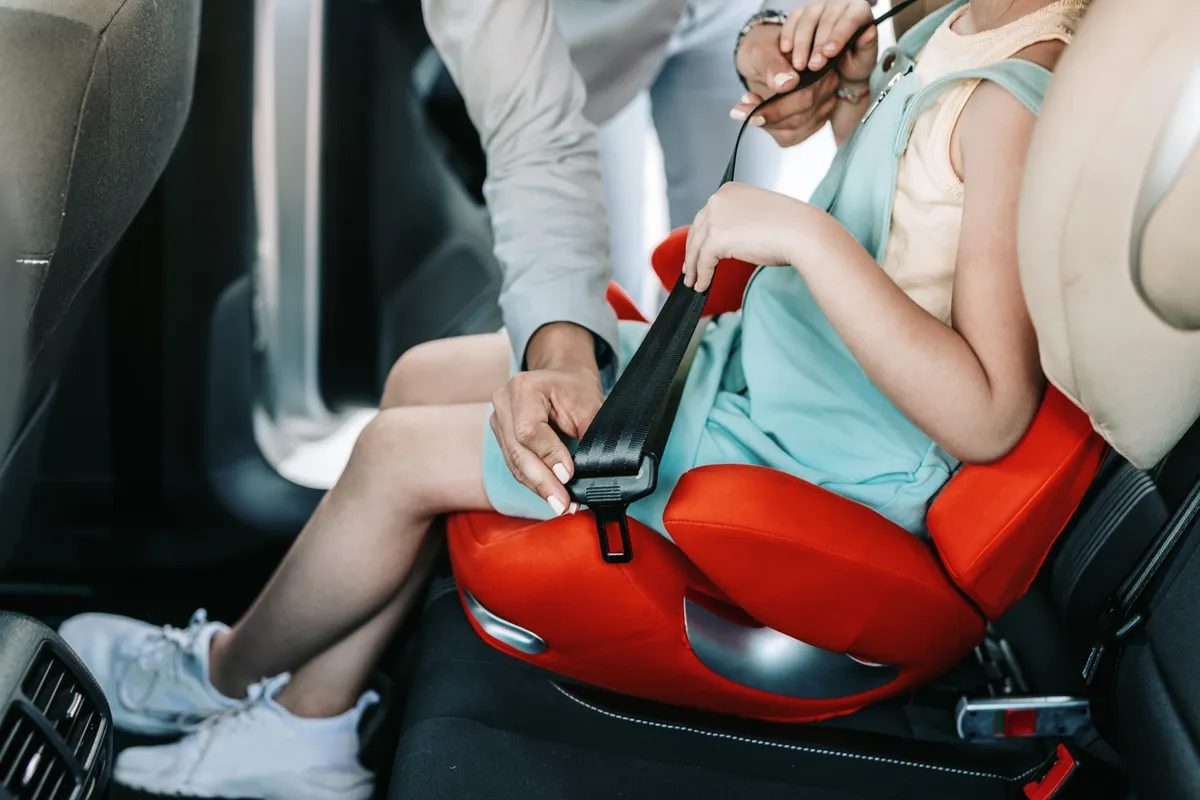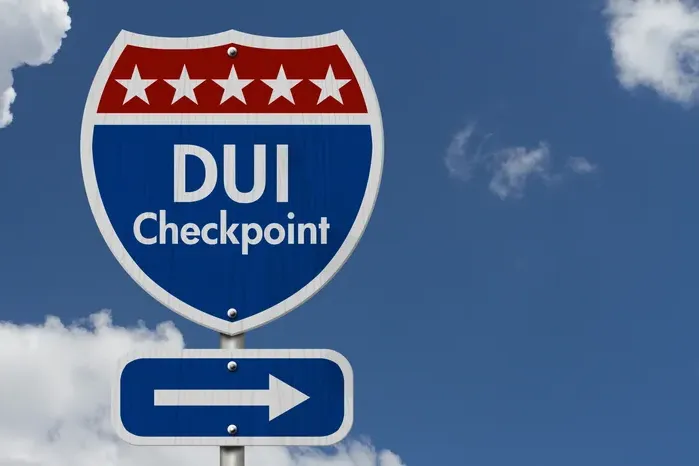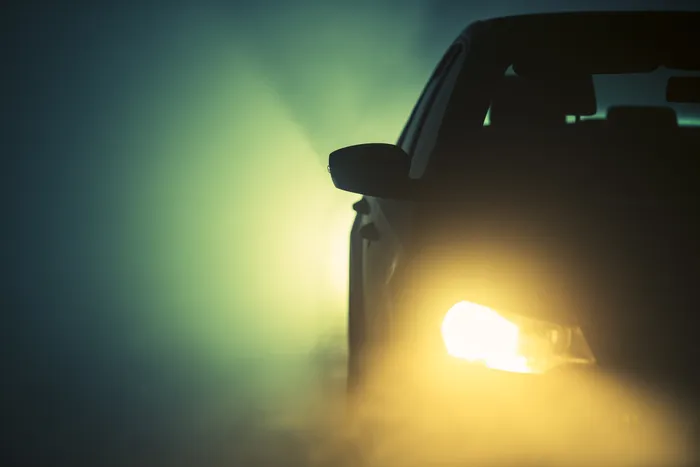7 min read time
Table of Contents

Understanding Nevada car seat laws
Nevada car seat laws are in place to protect child passengers in vehicles.
Knowing the Nevada law on child seats will help parents and guardians meet the legal car seat requirements and keep their kids safe on the road.
Age and Weight Requirements
Under Nevada Revised Statutes (NRS) 484B.157, children 6 years old and under 60 pounds must be in a car seat.
The child restraint system must meet federal safety standards and be used as the manufacturer instructs.
Types of Car Seats Depending on Age
Rear-Facing Car Seats | Age 1-24 Months: Infants and toddlers should ride in a rear-facing car seat until they reach the car seat law minimum height limit.
Forward-Facing Car Seat | 1 - 7 Years: Once a child outgrows their rear-facing seat, they should move to forward-facing car seats with a harness. They should stay in this seat until they reach the manufacturer's height or weight limit.
Booster Seats | 4 - 12 Years: After outgrowing forward-facing car seats, children should use booster seats until they are big enough to use the vehicle’s seat belt. This is usually around 4'9″ tall and 8-12 years old.
Installation
Car seats and booster seats must be an approved child restraint system and installed correctly in the vehicle. This means the seat must be tight, and the harness must be across the child’s body.
The NHTSA has resources and guidelines for installation.
Fines for Breaking Child Seat Laws
A first-time violation of Nevada’s child restraint laws results in a fine. The fine varies but is usually around $100-$500.
In addition to the fine, offenders may be required to take a child seat safety class. This class educates parents and guardians on using and installing a child restraint system.
Repeat offenders will get higher fines and could even face license suspension.
What are the booster seat laws in Nevada 2024?

Nevada's booster seat laws are designed to ensure the safety of children who have outgrown their forward-facing car seats but are not yet large enough to use the vehicle’s seat belt alone.
The latest safety standards and best practices guide the regulations to provide maximum protection for young passengers.
Here’s an overview of the booster seat laws in Nevada for 2024:
Booster Seat Age and Weight Requirements
Children who have outgrown their forward-facing car seats should transition to a booster seat.
Typically, this applies to children at least 4 years old and weighing between 40 and 60 pounds, though this can vary based on the child’s growth and the specific car seat manufacturer’s recommendations.
Booster seats are generally required until the child is 8 years old or reaches a height of 4 feet 9 inches.
Types of Booster Seats
High-Back Booster Seats: These are recommended for vehicles without headrests or with low seat backs. They provide head and neck support and properly position the seat belt across the child’s chest and lap.
Backless Booster Seats: These seats are suitable for vehicles with headrests and elevate the child to ensure that the seat belt fits correctly.
What Are the Nevada Car Seat Laws for an Uber
Nevada's car seat laws apply to all vehicles, including Uber.
To keep kids safe in an Uber, you must understand and follow the same laws that apply to personal vehicles. Here’s how Nevada car seat laws apply to Uber:
Uber Driver Responsibility
The parent or guardian is responsible for providing a child restraint system. When you book an Uber, be sure to bring a car seat or booster seat if you have a child who needs one.
Uber drivers do not need to provide car seats unless they offer this service through Uber’s car seat program, which is only available in select areas and at an extra cost.
At What Weight Can You Stop Using a Car Seat?

If you were wondering when your child can stop using a child restraint system, you must understand that it’s not just about the weight.
You must consider the child’s age, height, and the fit of the vehicle’s seat belt. Here’s the lowdown based on general guidelines and safety recommendations:
Kids must use a car seat or booster seat until they are at least 4’9″ and 80-100 pounds.
This usually happens between 8-12 years old.
Even if a child is at the weight and height, parents and guardians should prioritize safety and keep using a booster seat if the seat belt doesn’t fit right.
How Much Do You Have to Weigh to Sit in the Front Seat in Nevada
In Nevada, the laws are based on age and height, not weight. However, weight can still be a factor in keeping your child safe. Here’s a breakdown of the guidelines and recommendations for children sitting in the front seat:
Age and Height Guidelines
Age Requirements
It’s recommended that children under 13 sit in the back. Safety studies show that the back seat is the safest place for kids.
Height Considerations
Height is significant because the vehicle’s safety features, such as airbags, are designed for adults. These features may not protect children under 4 feet 9 inches.
Weight Considerations
There is no specific weight requirement for sitting in the front seat, but weight can play a role in a child sitting in the front.
For example, lighter children may not trigger the airbag sensors correctly, which can be a risk in the event of a car accident.
Front Seat Safety Guidelines
Airbag Safety
Airbags are designed to protect adults in a crash but can be dangerous for children, especially those under 13 or under 4 feet 9 inches. The force of an airbag deployment can result in serious injuries to the child.
If a child must sit in the front seat, push the seat back as far as possible to get as much distance between the child and the airbag as possible.
Proper Harness
Make sure the child is using a seat belt correctly. The lap belt should be across the upper thighs, and the shoulder belt should be across the chest and shoulder, not the neck or face.
If the child is too small for the seat belt to fit correctly, they should still use a booster seat, even in the front seat.
Nevada Child Seat Belt Laws
Child Restraint System Requirements
Children under 6 years old and under 60 pounds must be in an approved child restraint system.
In addition, the car and booster seat requirements must be met, and the child restraint system must be used as the manufacturer instructs to work properly.
To Seat Belts
Once a child is 6 years old and 60 pounds or more, they can transition to seat belts.
The seat belt must fit the child, the lap belt should lie across the upper thighs, not the stomach, and the shoulder belt should be across the chest and shoulder, not the neck or face.
Seat Belt Use
The seat belt must fit to work properly. The child should be able to sit back against the vehicle seat with knees bent comfortably over the edge of the seat without slouching.
If the seat belt does not fit, the child should use a booster seat or safety belt to make the belt fit.
Age and Height
Nevada law allows children between 6 and 60 pounds to use seat belts, but safety experts recommend that children use booster seats until they are at least 8 years old or 4’9” tall.
This ensures that the belt fits properly and provides the best protection.
Talk to a Las Vegas Car Accident Attorney
If you were in a Las Vegas car accident and seek maximum compensation, call (702) 566-3600 or submit a message to schedule a free consultation.
Obtain the Compensation You're Entitled To
Contact Us Today
Rodney Okano Car Accident Lawyer is a Las Vegas personal injury law firm with over 20 years of experience helping clients obtain maximum compensation following injuries from accidents such as car crashes, worksite injuries, and slips and falls. Over those years, The Rodney Okano Car Accident Lawyer Law Firm has become an experienced law firm that can ensure exceptional results for any of its clients.





